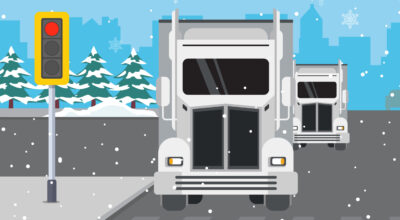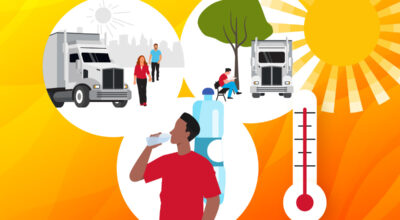
As a truck driver, your job takes you on the open road, sometimes through regions prone to severe weather conditions like hurricanes. Hurricane season runs roughly from June to November, with the high point of the season in the U.S. typically peaking in September and October.
As a driver, it’s crucial to be well-prepared and informed to ensure your safety and the safety of others on the road. Here are a few essential tips and guidelines to help you navigate hurricane season as a truck driver.
1. Stay Informed
Knowledge is your greatest ally during hurricane season. You should be regularly checking weather forecasts and what areas you’ll be driving through. Pay attention to any storm warnings, updates, or evacuations issued by local authorities. And utilize reliable sources such as weather websites, radio updates, or smartphone apps that provide real-time weather information.
2. Prepare an emergency kit
Having an emergency kit readily available in your truck can make a significant difference during hurricane season. Your kit should include essential items such as non-perishable food, drinking water, a flashlight, extra batteries, first aid supplies, a charged power bank for your phone, a weather radio, extra clothes, and a blanket. Additionally, include any personal medications you may need.
3. Maintain communication
Ensure that you have a reliable means of communication throughout your journey. Always carry a fully charged phone with you, and if possible, have a backup phone or a two-way radio for communication in case of network outages. It’s a good idea to also keep a list of emergency contact numbers handy on a piece of paper in case your phone dies.
4. Stay flexible and patient
During hurricane season, unexpected delays and changes in plans are common. Remain flexible and patient as you may encounter detours, road closures, or delays due to the storm’s impact. Stay in touch with your dispatcher for updates and follow their instructions. Safety should always be your top priority.
5. Secure your truck
Before severe weather strikes, take precautions to secure your truck. Park in a safe location away from trees, power lines, or other potential hazards. Ensure your vehicle’s fuel tank is topped up to avoid fuel shortages during emergency situations. Make sure your tires are properly inflated and inspect your truck for any maintenance issues before setting off.
6. Be aware of evacuation routes
If you find yourself in an area that is under evacuation orders, follow the designated evacuation routes provided by local authorities. Familiarize yourself with these routes before you start your journey, so you know where to go if the situation arises. Stay updated on evacuation orders and be ready to follow them if things deteriorate.
7. Seek shelter and safety
If you encounter severe weather conditions or believe you’re in danger, find shelter immediately. Look for safe locations like truck stops, rest areas, or designated storm shelters. Avoid parking near bodies of water or in low-lying areas prone to flooding.
Surviving hurricane season as a truck driver requires preparation, vigilance, and adaptability. Stay informed, plan your routes wisely, maintain communication, and be ready to adapt to changing conditions. Prioritize your safety and the safety of others on the road.
By following these guidelines, you can navigate through hurricane season with confidence and ensure a safer journey.
Need more safety tips? Check out our safety content library where we feature the latest safety tips & checklists for all seasons, how to prevent injuries, and more.


